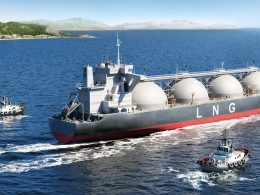Email this article | Print this article
 This article is a guest post by Mark Mobius, Franklin Templeton Investments.
This article is a guest post by Mark Mobius, Franklin Templeton Investments.
We started investing in Brazil in the early 1990s when inflation was running at as high as 5000%. On a visit to Rio de Janeiro, I remember telling my Brazilian friends how astonished I was to hear that inflation was 2000%. To my even greater surprise, they replied, “Yes, isn’t it wonderful? Last week it was 3000%!”[1]
Things have changed dramatically since then. Brazil’s export and domestic markets are booming, and economic growth could be as high as 5.5% this year.[2] Brazil is by far the largest economy in Latin America and the 10th largest in the world. It has a land mass larger than the U.S. with a population of over 190 million, that is much greater than that of Russia or Japan. Of course, some problems remain. Government corruption and crime both continue to be stubborn problems. But signs of economic improvement are abundant and hopefully may lead to a decline in the crime rate.
After the ruinous inflation of the 1990s, the government started adopting strict monetary policies with a focus on balancing government budgets. As a result, reserves of foreign exchange have built up. During the recent credit crunch that almost crippled the U.S. and Europe, the government opened up the money taps and encouraged banks to lend, thus stimulating domestic consumer demand and softening the impact of the crisis.
Brazilians have become more sensitive to environmental issues, particularly since the nation’s extensive natural resources in iron ore, oil, steel, coffee, oil, soybeans, sugar and beef have historically been a source of both export and domestic consumption on a major scale. They are particularly sensitive to the huge offshore oil fields and possible environmental impact if those fields are not managed carefully. As the host of the World Cup in 2014 and the Summer Olympics in 2016, Brazil wants to put on its best face and is rushing to get infrastructure projects underway. This means more roads, railways, bridges, airports, pipelines and housing ¾ and the Brazilians are very aware of the possible environmental impact of all this construction. With the focus on infrastructure projects, we also see tremendous opportunities for continued growth in the country; however, long-term success will depend on how these projects are executed.
Our research has shown that companies in Brazil are taking environmental responsibilities seriously. One of Brazil’s leading cosmetics firms focuses on the sustainable utilization of Brazil’s biodiversity and uses eco-friendly natural ingredients in its skin care, cosmetics, perfume and hair care products. The firm is probably one of the world’s leaders in ethically sourced ingredients for cosmetics and has one of the largest cosmetics research and development facilities in Brazil. A visit to the firm’s modern facilities convinced me that environmental awareness is central to its philosophy. The clean white buildings look out on huge green forests planted by the company.
One of the country’s largest iron ore producers and exporters is also investing over US$600 million each year in environmental projects. Its tree planting project covers the same area as its mining operations. Over three billion trees are protected under this scheme. The firm has an extensive railway operation and plans to fuel its locomotives and heavy machinery with palm-oil based biodiesel. The company has the best rating among other mining companies in carbon emissions per revenue.
At one of Latin America’s largest beer companies, the environmental management system developed by the Brazilian subsidiary was adopted globally by its Europe-based parent company as a basis for its worldwide management model. The global company stated that the sustainability of its business and the environment go hand in hand. The Brazilian subsidiary had reduced the rate of water consumption by 23%, equivalent to 815 million liters of water, in the past six years. This volume of water is sufficient to supply a population of 150,000 for a month. Recycling industrial waste has also resulted in increased revenue for the company; biomass fuel is used to power 30% of the company’s energy across 8 plants. This has led to a 27% reduction in greenhouse gas emissions, equivalent to planting 1.1 million trees.
Judging from our interaction with Brazil’s people and companies, they are serious about preserving the environment and I intend to enjoy the improving natural surroundings of this fantastically beautiful country.
[1] Year-over-Year CPI for 1990. [2] Source: IMF, WEO, as of April 2010.












